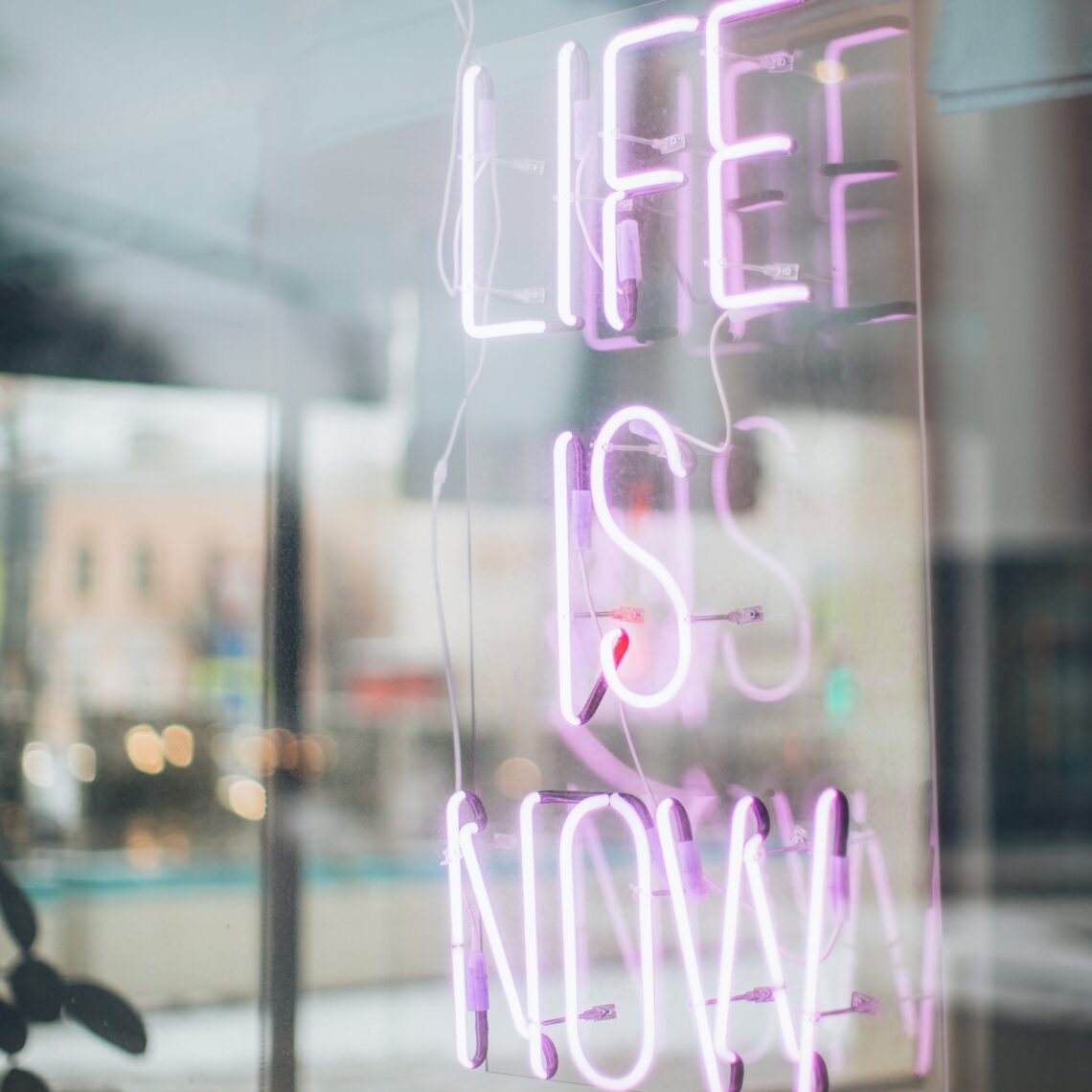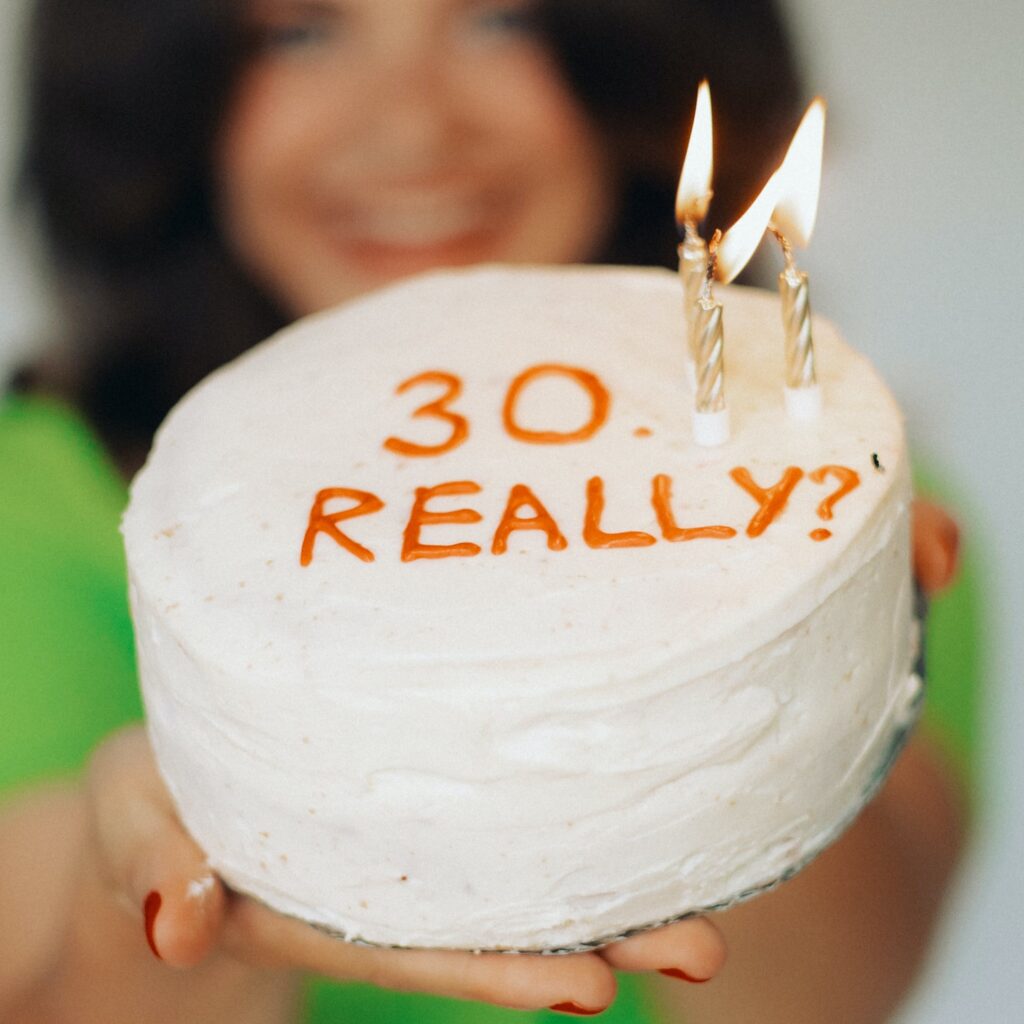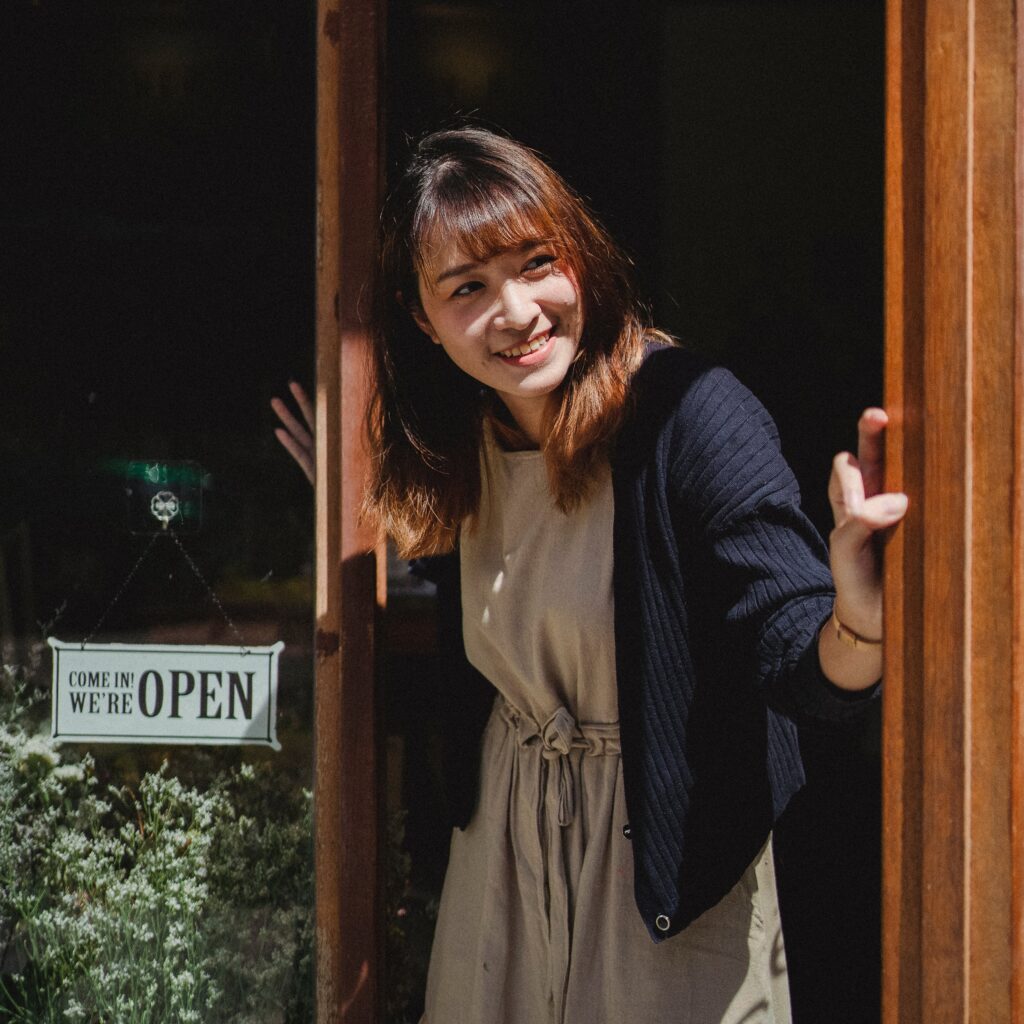
Learning to live in the present
As the year changes, Katelyn Hannel reflects on her own personal change of decade and what it actually means to ‘live in the present’.
I have reflected often at various times – during busy seasons, during travels, during transitions – on what it means to ‘be present’ or to ‘live in the moment’.
I thought about it a lot this year: when I turned 30 in October; and earlier, last spring, when I prepared to transition from one teaching job to another and had to wrap up my school year: I ended up theming my spring school concert around the ideas of celebrating the good that is past, looking to the future, and embracing the present. I also thought about it a lot when I was traveling through Europe this summer – wanting, as an American exploring such uniquely iconic sites, to truly appreciate the time I had and what was before me.
And of course, I have thought about it with 2023 ending and a new year beginning.
The passage from the twenties to the thirties led me to commit myself to ‘make the most of’ that last year before changing decades. This commitment, while not always faithfully followed, nonetheless did often serve as a positive motivator for me to embrace possibilities and pursue the desires that might have otherwise sat dormant. (Saying, “I want to do _____ before I turn 30” helped me to step forward and do it!) I’ve seen this goal bear fruit this year, in the various ways I pushed myself outside of my comfort zone, and I am grateful for that.
But at the same time there can be a danger of falling into the trap of wondering whether I truly have made good enough use of the moment – or the decade, or for that matter, of my whole life up to now.
I’ve come to believe that the notion of being present to any particular time or event must mean just that: being actually present in the moment – whatever it is – and not focusing on wondering whether or not we are being present enough.
Being present means experiencing the moment as it is – not trying to make it feel a certain way.
That very wording there implies ‘making’ something happen – forcing something, contriving something – rather than allowing it to be what it is.
Maybe it’s just the way my brain works (though I imagine I might not be the only one), but I sometimes feel like I need to fully comprehend the experiences I’m having (especially if it’s something important), or that the weight of it should feel as if it fully sinks in. But in a certain sense, trying too hard to ‘feel like I’m being present’ might actually be contrary to actually being present – that is, in the sense of experiencing whatever the moment is, and allowing it to be what it is.
Time is an interesting thing. A moment exists in time, and then is gone. There is a tendency to want to keep it. Especially if it is something good. We see good things, and we want them to continue. We want to hold them, because they are good! And if they’re not good, sometimes we desire to hold onto them anyway, to try to fix them and try to control what goes into our stories.
As we see ourselves moving into new seasons of life (and necessarily, by association, saying goodbye to old ones), we might want to make sure that we are ‘making the most’ of the time we have, so that we fully appreciate it before it is gone.
The more I learn about how the mind works, or at least about how my own mind works, I have to conclude that this hyperfocus on ‘making the most of things’ also stems, to some degree, from a root fear of loss.
Change and transitions, while often happy and exciting, are also simultaneously forms of loss. There is a loss of what was – never to be experienced again in the exact way, other than through memories. And the loss of the possibilities of what could have been.
Perhaps this is exacerbated by societal stereotypes implying that one’s twenties are meant to be the prime of one’s life, and societal expectations that certain things should have already been achieved by the time of reaching the big ‘3-0’.
Even apart from these social pressures, there is the pressure one puts on oneself – wanting to feel fulfilled, wanting to feel like we’ve ‘reached’ something. This can create a sense of anxiety about our identity and purpose.
Then there is the very real loss of youth. The older we get, the further we see that youth move away and know that these years of our lives are now behind us. We see a new generation growing below us who are now the current university students, or even the ones growing their career in their mid-twenties, and we are now the ‘older ones’. It’s a strange feeling, and forces us to reckon with the fact that that time for us has come and gone.
I sometimes wonder if my wanting to ‘be present’ is a form of wanting to cling to those past days more tightly before having to let them go.
Yet I often find that when I face big transitions in life, the time leading up to the actual ‘thing’ tends to sneak up on me, and I rarely ever feel like I’m actually mentally ‘prepared’ for it. I just have to step forward and trust that I’ll feel it once I do. Here it is, whether or not I’m ready.

But as my 30th birthday drew nearer and nearer, I also found myself wondering if perhaps, in another sense, maybe I am ready. Sometimes I’ve wondered if my mind has already transitioned to this new world of 30, and been operating as such. Growing up, I used to look at people who were 30 as ‘so old’ – and now, that’s me. But I don’t ‘feel’ old. My brain says it should ‘feel’ a certain way! But there, again, is the question of how it should ‘feel’. Maybe it doesn’t ‘feel’ a certain way all of the time because most of the time I’m just living.
I’ve found myself half-joking to people that I’m okay with turning 30 as long as I don’t think too hard about it. On one level, I do need to think about it – to identify the feelings of uncertainty that arise within me, and sit with them; to celebrate the things that have been good and beautiful about these past years of my life; to accept the things that I might have wished were different, and surrender them to divine providence.
But then, after I’ve done so? I think it’s better for me to have a cup of coffee, or wash my dishes, or look up at the sky and watch the planes, or catch up with a friend, or tell my family I love them, or whatever else to which the present moment might call me. And then to keep stepping forward through the new doors that life has been opening for me (or that I’ve been opening for myself) – opportunities that are open to me now, and weren’t ‘then’.

I’m at a point in life where I’m doing many of the things I would have always wanted to do, and I am grateful for it. I’m making music both professionally and personally with greater confidence and fulfillment (and gradually taking steps to share it more); I’ve gotten to know years’ worth of students from my school(s), and have priceless memories and mementos I will treasure for years to come.
I’ve traveled to Europe on my own, twice, and brought back priceless physical and mental keepsakes; I’ve pursued a long-held desire of living right next to Washington, DC, and all it affords; I’ve taken chances and pursued other long-held desires of writing for publication; I’ve expanded my social circles, made new friends, pursued connection with others in various valuable ways; I’m gradually tuning in more and more to my inner emotional world, and learning more and more how to love and be loved.
Little by little I’ve been reconnecting with the person I was as a child, and learning to allow that younger girl’s hopeful, optimistic, and expressive spirit to guide my adult life.
And even though I sometimes get in my own way, I am excited to continue growing in it.
When I don’t fixate on trying to cling to time or possess it, it remains more fully itself – that is, I can see it more clearly as it truly is – and in the process, I remain more fully myself. I am more free and at peace when I’m giving my attention to what’s right in front of me and not worrying needlessly about what’s ahead or behind.
Rather than try to close my hand around these past years and try to possess them, I can keep my hands open and allow them to pass away – and if my hands are open in this way, they are more ready to receive the new gifts and graces that come next.
Gradually I am learning that getting older doesn’t have to be a thing to be feared, but rather something good and beautiful to embrace. It is a living testament to how many of my hopes and aspirations have been fulfilled in ways I wouldn’t have known to expect. And it is at the same time a looking forward to discovering more and more the person I was created and called to be.
Here and now, in the present, I am becoming that person, and I get to live as that person in new ways each new day. So as I step into each tomorrow – a new day, a new month, a new year, a new decade – I pray for the grace to keep stepping forward into each new ‘now’ with courage and faith.
Like what you’ve read? Consider supporting the work of Adamah by making a donation and help us keep exploring life’s big (and not so big) issues!
Katelyn Hannel
Katelyn Hannel writes from just outside of Washington, DC, in Arlington, Virginia. She is a school music teacher and choir director in the Diocese of Arlington, a pianist and singer, an ardent traveler, and a seeker of wisdom in daily life. She values having a foot in both the sacred and secular worlds, as it has given her opportunities both to deepen her own faith and to build wider circles with others. She is passionate about connecting faith to lived experience, and helping her students find their paths to become self-confident, happy, and fulfilled.

